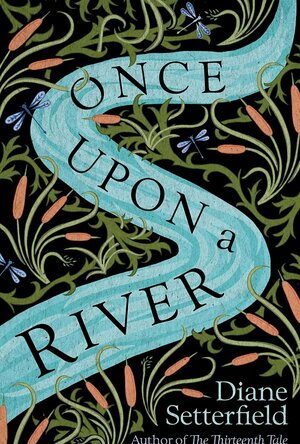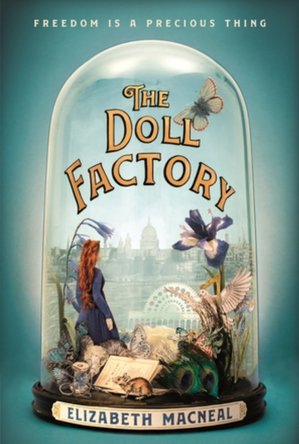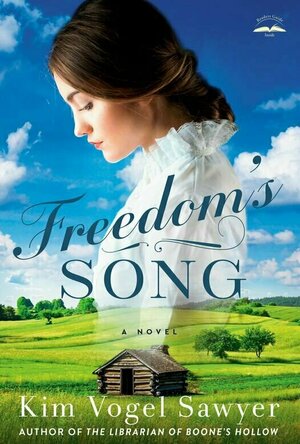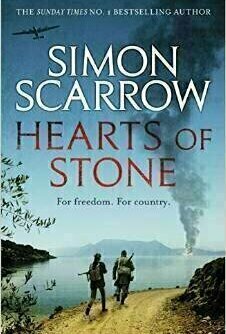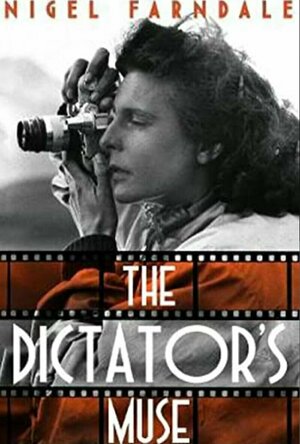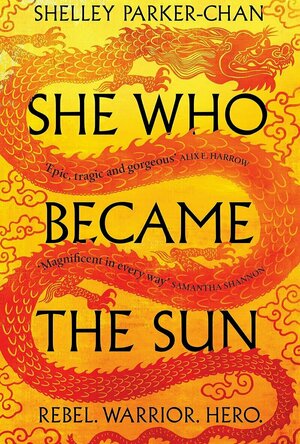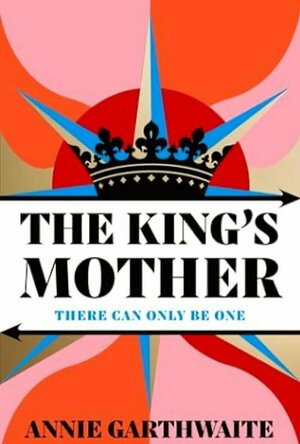Search
Search results
Nicole Hadley (380 KP) rated Desert Moon: Also Includes Bonus Story of Honor Bond by Colleen L. Reece in Books
Jun 18, 2018
Desert Moon by Susan Page Davis is a wonderful historical fiction. The story takes place in Arizona. There is a sweet romance throughout the story with a little bit of danger and mystery added. The story begins fast with a stage coach robbery and then blames of the crime are made and with evidence.
The main character, Julia Newman, is a young lady that makes the difficult decisions. Julia receives double bad news in a short amount of time. First she learns of her mother's death, then she learns that her brother is accused of robbing a stagecoach and the person who informed her is the man that Julie has always love, Deputy Adam Scott.
Julie left home to go to school to become a teacher because she could not stand to be near the man she loved, Deputy Adam Scott. On her way home, Julie learns that the stagecoach she is riding in has been robbed. Deputy accused Julie's brother of the crime, which frustrates her. Julie tries to convince Deputy Adam Scott of her brother's innocence but then finds out that her brother has gone mission. During this exchange, Julie discovers that her feelings for Deputy Adam Scott has not gone away as she hoped would happen when she went away to school.
Thank you to NetGalley and Barbour Books for the ARC in exchange for an honest review.
The main character, Julia Newman, is a young lady that makes the difficult decisions. Julia receives double bad news in a short amount of time. First she learns of her mother's death, then she learns that her brother is accused of robbing a stagecoach and the person who informed her is the man that Julie has always love, Deputy Adam Scott.
Julie left home to go to school to become a teacher because she could not stand to be near the man she loved, Deputy Adam Scott. On her way home, Julie learns that the stagecoach she is riding in has been robbed. Deputy accused Julie's brother of the crime, which frustrates her. Julie tries to convince Deputy Adam Scott of her brother's innocence but then finds out that her brother has gone mission. During this exchange, Julie discovers that her feelings for Deputy Adam Scott has not gone away as she hoped would happen when she went away to school.
Thank you to NetGalley and Barbour Books for the ARC in exchange for an honest review.
David McK (3562 KP) rated Brothers in Blood (Eagles of the Empire 13) in Books
Jan 30, 2019
13. Unlucky for some?
The reason I bring that up is because this is the 13th entry in the Cato and Macro series that began way back in 2001 with [b: Under the Eagle|578428|Under the Eagle (Eagle, #1)|Simon Scarrow|https://d.gr-assets.com/books/1315349321s/578428.jpg|565359] and, by now, you pretty much know what to expect!
Taking place not long after [b: The Blood Crows|18484220|The Blood Crows (Eagle, #12)|Simon Scarrow|https://d.gr-assets.com/books/1380275584s/18484220.jpg|25144364], this is also set back in Brittania, with the culmination (?) of the campaign against Caratacus.
Somehow, however, I found this to be 'flatter' than the previous novels; just not as engaging as before. I don't know whether this is to do with the change in the circumstances between Cato and Macro or in the fact that I've been reading quite a few historical fiction novels recently or what, but this (I felt) was just not as good as the earlier entries in the series.
(Oh, and as an aside: my version came with a short story 'The Red Sail' included, with that story having two endings. All in all, I think I actually preferred the alternative ending - every hero, after all, needs his nemesis. Batman has the Joker, Superman has Lex Luthor, Sherlock Holmes had Moriarity .. )
The reason I bring that up is because this is the 13th entry in the Cato and Macro series that began way back in 2001 with [b: Under the Eagle|578428|Under the Eagle (Eagle, #1)|Simon Scarrow|https://d.gr-assets.com/books/1315349321s/578428.jpg|565359] and, by now, you pretty much know what to expect!
Taking place not long after [b: The Blood Crows|18484220|The Blood Crows (Eagle, #12)|Simon Scarrow|https://d.gr-assets.com/books/1380275584s/18484220.jpg|25144364], this is also set back in Brittania, with the culmination (?) of the campaign against Caratacus.
Somehow, however, I found this to be 'flatter' than the previous novels; just not as engaging as before. I don't know whether this is to do with the change in the circumstances between Cato and Macro or in the fact that I've been reading quite a few historical fiction novels recently or what, but this (I felt) was just not as good as the earlier entries in the series.
(Oh, and as an aside: my version came with a short story 'The Red Sail' included, with that story having two endings. All in all, I think I actually preferred the alternative ending - every hero, after all, needs his nemesis. Batman has the Joker, Superman has Lex Luthor, Sherlock Holmes had Moriarity .. )
Christine A. (965 KP) rated Once Upon a River in Books
Dec 19, 2018
I was provided with a complimentary copy of this book so I could give an honest review.
"Once Upon the River" by Diane Setterfield is a difficult book to categorize. It’s part fairy tale, part mystery, part fantasy, and has a dash of historical fiction thrown in for good measure. It revolves around a little town, its pub, its residents, and the river that flow nearby.
The residents are a colorful cast of characters. I enjoyed Setterfield’s use of the pub’s regulars and how they helped move the story along with their storytelling. Storytelling is a significant topic discussed in the story.
I found the beginning of the story confusing. I think it was because of all of the people involved in the storyline. Three separate storylines run parallel and intermingle in the story. Once I was able to keep the characters straight I thoroughly enjoyed the book.
I also listened to a preview of the corresponding audiobook and recommend that also. The narrator, Juliet Stevenson, uses different voices that allows the listener to clearly recognize that character.
I devoured Setterfield’s “The Thirteenth Tale” (my rating is 4 out of 5 stars) and now “Once Upon a River” (4 stars rating). Diane Setterfield is now an author I follow and am looking forward to her next story.
"Once Upon the River" by Diane Setterfield is a difficult book to categorize. It’s part fairy tale, part mystery, part fantasy, and has a dash of historical fiction thrown in for good measure. It revolves around a little town, its pub, its residents, and the river that flow nearby.
The residents are a colorful cast of characters. I enjoyed Setterfield’s use of the pub’s regulars and how they helped move the story along with their storytelling. Storytelling is a significant topic discussed in the story.
I found the beginning of the story confusing. I think it was because of all of the people involved in the storyline. Three separate storylines run parallel and intermingle in the story. Once I was able to keep the characters straight I thoroughly enjoyed the book.
I also listened to a preview of the corresponding audiobook and recommend that also. The narrator, Juliet Stevenson, uses different voices that allows the listener to clearly recognize that character.
I devoured Setterfield’s “The Thirteenth Tale” (my rating is 4 out of 5 stars) and now “Once Upon a River” (4 stars rating). Diane Setterfield is now an author I follow and am looking forward to her next story.
Christine A. (965 KP) rated The Doll Factory in Books
Feb 7, 2020
I was provided with a complimentary copy of this book so I could give an honest review.
The Doll Factory is the debut novel of Elizabeth Macneal. It is not a children's book. Before reading it, some reviewers thought it could be because of the cover. Afterward, they realized they were mistaken.
It is a historical fiction novel set in 1850 London. It revolves around Iris, a doll maker, who dreams of a better life. Iris knows her life drastically changes when she meets Louis Frost, a painter, who agrees to teach her to paint in exchange for sitting as his model. What she does not know is it also drastically changes with a brief exchange with Silas, a strange collector who is entranced and quickly becomes obsessed with Iris.
The story is a slow burn and took a while for me to really get into it. It was because of this, the story felt longer than 336 pages. Macneal's description of Silas's increasing obsession with Iris is creepy, dark, and extremely believable. What made it creepier is that Iris does not even remember meeting Silas. Yet, he believes Iris is as infatuated with him as he is with her. This theme has been done before but the 1850 London setting helps make the obsession even darker.
This 200-word review was published on Philomathinphila.com on 2/6/2020.
The Doll Factory is the debut novel of Elizabeth Macneal. It is not a children's book. Before reading it, some reviewers thought it could be because of the cover. Afterward, they realized they were mistaken.
It is a historical fiction novel set in 1850 London. It revolves around Iris, a doll maker, who dreams of a better life. Iris knows her life drastically changes when she meets Louis Frost, a painter, who agrees to teach her to paint in exchange for sitting as his model. What she does not know is it also drastically changes with a brief exchange with Silas, a strange collector who is entranced and quickly becomes obsessed with Iris.
The story is a slow burn and took a while for me to really get into it. It was because of this, the story felt longer than 336 pages. Macneal's description of Silas's increasing obsession with Iris is creepy, dark, and extremely believable. What made it creepier is that Iris does not even remember meeting Silas. Yet, he believes Iris is as infatuated with him as he is with her. This theme has been done before but the 1850 London setting helps make the obsession even darker.
This 200-word review was published on Philomathinphila.com on 2/6/2020.
Lindsay (1760 KP) rated Freedom's Song in Books
Sep 28, 2021
Are you a Kim Vogel Sawyer fan? Or a historical fiction fan? Then you will enjoy Kim's newest book to be coming out soon. It is delightful. Kim writes wonderfully, and this book captured my attendance for the entire book.
I was wondering if Sloane would catch up to Fanny. This book pulls you through Fanny's journey, and she will get her freedom. In the process, Sloan will find his freedom as well. There are three main characters throughout this book. We get to see their point of view throughout the book; Most of them are Fanny's point of view. We do see Walters and Sloane's point of view throughout the book as well.
This book talks about slaves. What will happen when Fanny meets Enoch and his family? Will she help them to freedom, and she gets help with being hidden with them. What will Fanny do? Will Sloane learn about keeping his word and about God?
Will Sloan find his riverboat singer? Does he seem to think he is on a goose chase trying to find a singer that seems to sing her way to freedom? The plot thickens, and there will be freedom for Fanny. Will she get what she has been looking for in life. Fanny agreed to help care and watch over Walter's little girl Annlesse. What will happen when Walter's new wife comes?
I was wondering if Sloane would catch up to Fanny. This book pulls you through Fanny's journey, and she will get her freedom. In the process, Sloan will find his freedom as well. There are three main characters throughout this book. We get to see their point of view throughout the book; Most of them are Fanny's point of view. We do see Walters and Sloane's point of view throughout the book as well.
This book talks about slaves. What will happen when Fanny meets Enoch and his family? Will she help them to freedom, and she gets help with being hidden with them. What will Fanny do? Will Sloane learn about keeping his word and about God?
Will Sloan find his riverboat singer? Does he seem to think he is on a goose chase trying to find a singer that seems to sing her way to freedom? The plot thickens, and there will be freedom for Fanny. Will she get what she has been looking for in life. Fanny agreed to help care and watch over Walter's little girl Annlesse. What will happen when Walter's new wife comes?
David McK (3562 KP) rated Hearts of Stone in Books
Feb 9, 2022
Not quite what the blurb makes out
Whilst I do associate Simon Scarrow with the genre of historical fiction, these tend to be set further back in history: mainly around the time of the Roman Empire; there or thereabouts.
Until recently, I've tended to avoid his few works that are more contemporary in nature, only recently (towards the end of last year) reading Blackout as I felt they were 'too close' (if that makes sense) for comfort for me in that there are still people alive who lived through the setting.
I must admit, I did quite enjoy Blackout so thought I would also give this a go, due to the roughly the same (WW2) setting.
This novel flits back and forth between then and 'now' (of 2013), as the descendants of the main 1940s settings character start to discover more about their ancestors - in particular, as history teacher Anna uncovers the story of her maternal grandmother Eleni, who participated in the Greek resistance on the island of Lefkas during 1943.
The whole had-a-German-friend in 1939 thing almost seems incidental to the story (he's not), until roughly about the final third.
And yes, I did pick up on the arguments in favour of teaching history (a subject I did, mostly, enjoy in school) passages.
Until recently, I've tended to avoid his few works that are more contemporary in nature, only recently (towards the end of last year) reading Blackout as I felt they were 'too close' (if that makes sense) for comfort for me in that there are still people alive who lived through the setting.
I must admit, I did quite enjoy Blackout so thought I would also give this a go, due to the roughly the same (WW2) setting.
This novel flits back and forth between then and 'now' (of 2013), as the descendants of the main 1940s settings character start to discover more about their ancestors - in particular, as history teacher Anna uncovers the story of her maternal grandmother Eleni, who participated in the Greek resistance on the island of Lefkas during 1943.
The whole had-a-German-friend in 1939 thing almost seems incidental to the story (he's not), until roughly about the final third.
And yes, I did pick up on the arguments in favour of teaching history (a subject I did, mostly, enjoy in school) passages.
ClareR (5885 KP) rated The Dictator’s Muse in Books
Jan 10, 2023
This sounded like it was going to be solely about Leni Riefenstahl, but it’s not. This is a really enjoyable mystery set in Germany and England in the pre-war years, and the Berlin Olympics in particular.
Hitler is in power, and one of his most respected film makers, Leni Riefenstahl, has been tasked with filming the Berlin Olympics. She has to tread a fine line between the film-making she wants to create and that of the Nazi propaganda machine.
Meanwhile, back in England, Kit is training for the olympics whilst holding down a full time job and trying to impress his upper class girlfriend. He discovers he can get sponsorship through Oswald Mosley’s British Union of Fascists, even though he isn’t by any means a fascist.
Alun is a Welsh Communist, who has been tasked with infiltrating the Blackshirts.
Leni seems to be in a state of permanent dread, because even those who are staunch Nazis aren’t safe from being taken down by the SS.
There’s a lot going on in this book, and it sounds like it should be confusing. But it’s really not. It wasn’t fact, unputdownable.
There’s a great mystery threaded through this, introduced by a modern day character, an academic called Sigrun Meier.
Historical fiction AND a mystery - what’s not to like?!
Hitler is in power, and one of his most respected film makers, Leni Riefenstahl, has been tasked with filming the Berlin Olympics. She has to tread a fine line between the film-making she wants to create and that of the Nazi propaganda machine.
Meanwhile, back in England, Kit is training for the olympics whilst holding down a full time job and trying to impress his upper class girlfriend. He discovers he can get sponsorship through Oswald Mosley’s British Union of Fascists, even though he isn’t by any means a fascist.
Alun is a Welsh Communist, who has been tasked with infiltrating the Blackshirts.
Leni seems to be in a state of permanent dread, because even those who are staunch Nazis aren’t safe from being taken down by the SS.
There’s a lot going on in this book, and it sounds like it should be confusing. But it’s really not. It wasn’t fact, unputdownable.
There’s a great mystery threaded through this, introduced by a modern day character, an academic called Sigrun Meier.
Historical fiction AND a mystery - what’s not to like?!
ClareR (5885 KP) rated She Who Became The Sun in Books
Jun 13, 2023
She Who Became the Sun is a book that I could really immerse myself in. It took its time over laying the foundations of what will continue to be, I’m sure, an epic story. This is a re-imagining of the life and rise of Zhu Yuanzhang - the peasant rebel who expelled the Mongols, unified China and became the founding Emperor of the Ming dynasty. So, no small story then!
Shelley Parker-Chan has added a twist to the story, though. The Zhu Yuanzhang in this story is actually female. Born a girl, she steals her brothers identity when he dies so that she can survive - girls were not important enough to survive otherwise. She decides to live her brothers life, and as a fortune teller has foretold, she will rise to great heights in his name. And this process starts by Zhu being taken in and educated by the monks at a monastery.
This isn’t fantasy as much as it is historical fiction. Ok, there is a little bit of magic, but I took that as being an explanation of a leaders charisma. The writing IS beautiful, particularly the descriptions of the relationship between Zhu and the eunuch General Ouyang, and the queer story of Zhu and her wife.
We’re left on a bit of a cliffhanger, I’ll warn you, but we won’t have long to wait for the sequel!
Shelley Parker-Chan has added a twist to the story, though. The Zhu Yuanzhang in this story is actually female. Born a girl, she steals her brothers identity when he dies so that she can survive - girls were not important enough to survive otherwise. She decides to live her brothers life, and as a fortune teller has foretold, she will rise to great heights in his name. And this process starts by Zhu being taken in and educated by the monks at a monastery.
This isn’t fantasy as much as it is historical fiction. Ok, there is a little bit of magic, but I took that as being an explanation of a leaders charisma. The writing IS beautiful, particularly the descriptions of the relationship between Zhu and the eunuch General Ouyang, and the queer story of Zhu and her wife.
We’re left on a bit of a cliffhanger, I’ll warn you, but we won’t have long to wait for the sequel!
ClareR (5885 KP) rated The King’s Mother in Books
Jan 7, 2025
I realise as I write this that I’ve read The King’s Mother before the first part of this duology (Cecily). Ah well. It hasn’t spoilt my enjoyment one bit, though. I have a fair bit of knowledge of the War of the Roses from Edward and Richard’s points of view, and it was fascinating to learn about Edward’s reign (and later Richard’s) from Cecily.
This novel explores those things that the women, in particular, would have experienced. Their lives wouldn’t have just been about waiting for their husbands, sons and fathers to come home, it would have been about the relationships with other women, their children, and in Cecily’s case, about her relationship to the throne and those in power.
Cecily was a formidable woman (as was Henry VII’s mother, Margaret Beaufort). She saw the death of her husband, sons, and regime changes. She backed her sons up, no matter her personal opinions. She was unendingly loyal - but anyone else was fair game!
This is such a well-researched, gripping read. I would have hated to have been in Cecily’s shoes, and she proved that power didn’t always bring happiness.
This was a fabulous read, and I will go back and read Cecily. If you enjoy historical fiction, then this would be a great addition to your TBR!
This novel explores those things that the women, in particular, would have experienced. Their lives wouldn’t have just been about waiting for their husbands, sons and fathers to come home, it would have been about the relationships with other women, their children, and in Cecily’s case, about her relationship to the throne and those in power.
Cecily was a formidable woman (as was Henry VII’s mother, Margaret Beaufort). She saw the death of her husband, sons, and regime changes. She backed her sons up, no matter her personal opinions. She was unendingly loyal - but anyone else was fair game!
This is such a well-researched, gripping read. I would have hated to have been in Cecily’s shoes, and she proved that power didn’t always bring happiness.
This was a fabulous read, and I will go back and read Cecily. If you enjoy historical fiction, then this would be a great addition to your TBR!
Deborah (162 KP) rated The Queen's Confidante in Books
Dec 21, 2018
The book has three mysteries at the heart - was Arthur Tudor really murdered (I confess this is a new theory to me and not sure how credible this is), what happened to the so-called Princes in the Tower and what became of Lord Lovell after the Battle of Stoke. Personally, I think the latter is done a great disservice here, based on the historical knowns of his character. Even so, what happens and with the hero and heroine's consent is pretty horrific - yes, I know the historical basis for this, but it doesn't do much good for liking the supposed protagonists! Also the rather melodramatic language as the book nears it's conclusion - monster, beast, devil - it just goes a bit over the top.
I could explain a bit more about why I wasn't keen on the book, but it would be difficult to do without spoilers, so I suppose I will leave that there. I will just say that I find it hard to credit that when Elizabeth Woodville came out of sanctuary in 1484 she didn't know what had happened to her sons and therefore one would assume that Elizabeth of York would also have known - and she was happy enough to be honoured at her uncle's court that Yuletide. Having the Elizabeth of this book rail against Yorkists when she came from what seemed a close family does seem to me to be somewhat absurd.
There are, also, a number of errors which could and should have been picked up. Another reviewer has already mentioned the note which is shown to two other people on one page and on the following page is apparently a secret! There are also TWO erroneous mentions of Richard duke of York, when the context is reasonably clear the person actually referred to is York's son, Richard Duke of Gloucester - elementary mistake that should not have been made!
Perhaps I have read too many non-fiction books about the period and have formed my own strong opinions to enjoy this book as much as some other reviewers. If it is going to be your 'thing' I can only give you my opinion and leave it to yourselves to determine.
I could explain a bit more about why I wasn't keen on the book, but it would be difficult to do without spoilers, so I suppose I will leave that there. I will just say that I find it hard to credit that when Elizabeth Woodville came out of sanctuary in 1484 she didn't know what had happened to her sons and therefore one would assume that Elizabeth of York would also have known - and she was happy enough to be honoured at her uncle's court that Yuletide. Having the Elizabeth of this book rail against Yorkists when she came from what seemed a close family does seem to me to be somewhat absurd.
There are, also, a number of errors which could and should have been picked up. Another reviewer has already mentioned the note which is shown to two other people on one page and on the following page is apparently a secret! There are also TWO erroneous mentions of Richard duke of York, when the context is reasonably clear the person actually referred to is York's son, Richard Duke of Gloucester - elementary mistake that should not have been made!
Perhaps I have read too many non-fiction books about the period and have formed my own strong opinions to enjoy this book as much as some other reviewers. If it is going to be your 'thing' I can only give you my opinion and leave it to yourselves to determine.

